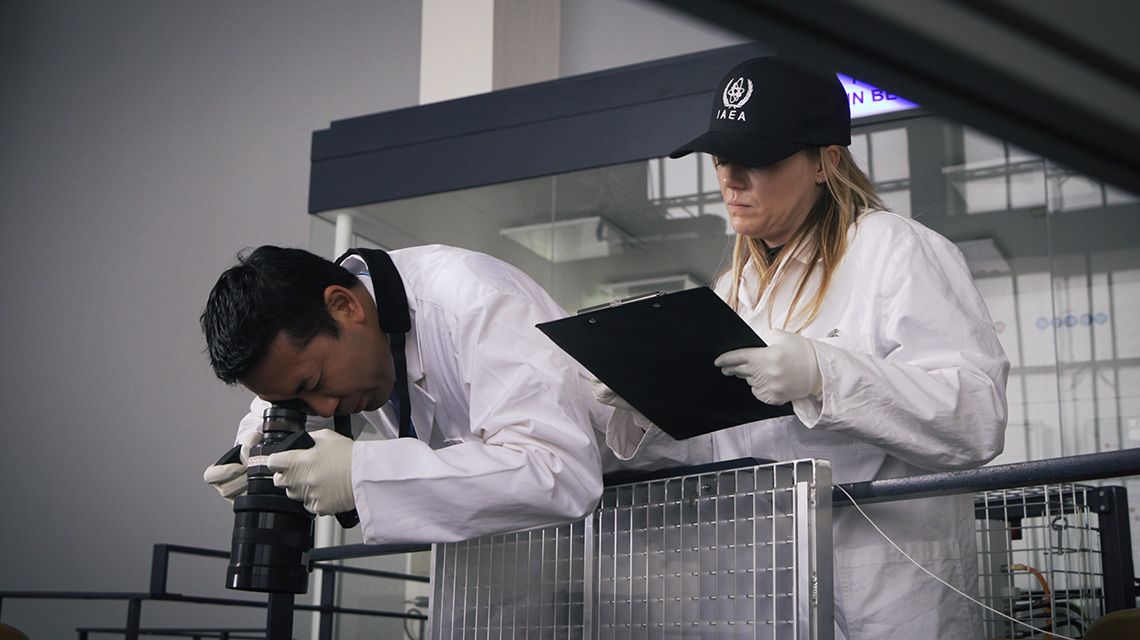
“Despite the COVID-19 pandemic, the Agency performed all of its most time-critical in-field nuclear verification work,” said IAEA Director General Rafael Mariano Grossi. “Safeguards implementation did not stop for a single minute.”
The Safeguards Statement for 2020, published this week, presents the IAEA’s findings and safeguards conclusions for all States for which the IAEA implemented safeguards during the year. IAEA safeguards are technical measures embedded in safeguards agreements, which are implemented by the IAEA to provide the international community with confidence that nuclear material remains in peaceful use.
“The global pandemic presented unprecedented and challenging conditions, which the IAEA managed to overcome to carry out its nuclear verification work worldwide,” said Massimo Aparo, IAEA Deputy Director General and Head of the Department of Safeguards. “By adjusting to the circumstances, and implementing specific solutions to address particular situations, the IAEA retained its ability to draw independent and soundly based safeguards conclusions.”
As in previous years, the amount of nuclear material under safeguards increased globally – by 2.3% in 2020 – resulting in a growing demand for verification. One of the novel solutions to meet the particular challenges posed by restrictions in air travel involved chartering aircraft for the first time in the history of the IAEA to transport inspectors around the world. Inspectors in many cases were required to spend extended periods travelling, in addition to over 2,300 days under quarantine at their destinations.
In 2020, the IAEA was able to draw safeguards conclusions for 183 of the 184 States with safeguards agreements in force. The one State without a safeguards conclusion is the Democratic People’s Republic of Korea, where the Agency did not implement safeguards and, therefore, could not draw any conclusion.
Of the 176 States with a comprehensive safeguards agreement in force in 2020, 131 also had an additional protocol in force or being provisionally implemented. By providing access to additional information, sites and locations, the additional protocol significantly increases the IAEA’s ability to verify the peaceful use of all nuclear material in a State with a comprehensive safeguards agreement.
For 72 States with a comprehensive safeguards agreement and an additional protocol in force, the IAEA was able to conclude that “all nuclear material remained in peaceful activities,” and for the other 103 States with comprehensive safeguards agreements, 59 of which also have additional protocols in force, that “declared nuclear material remained in peaceful activities.”
For the three countries with item-specific safeguards agreements in force (India, Israel and Pakistan), the IAEA concluded that “nuclear material, facilities or other items to which safeguards had been applied remained in peaceful activities.”
For the five countries with voluntary offer agreements in force (China, France, Russia, the United Kingdom and the United States), the IAEA concluded that “nuclear material in selected facilities to which safeguards had been applied remained in peaceful activities or had been withdrawn from safeguards as provided for in the agreements.” During the year, a new safeguards agreement and additional protocol between the United Kingdom and the IAEA entered into force, ensuring continuing safeguards implementation following the country’s departure from the European Union.
"original" - Google News
June 21, 2021 at 08:06PM
https://ift.tt/3gQBgrt
IAEA Nuclear Verification Continued During the COVID-19 Pandemic – Safeguards Statement 2020 | IAEA - International Atomic Energy Agency
"original" - Google News
https://ift.tt/32ik0C4
https://ift.tt/35ryK4M
Bagikan Berita Ini














0 Response to "IAEA Nuclear Verification Continued During the COVID-19 Pandemic – Safeguards Statement 2020 | IAEA - International Atomic Energy Agency"
Post a Comment